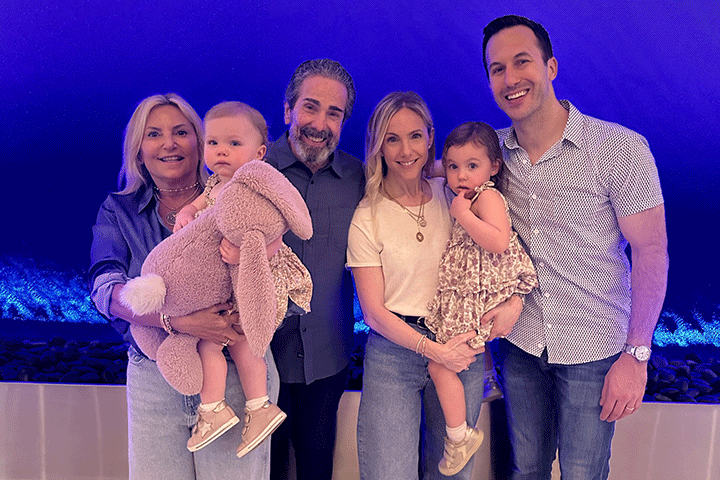Pancreatic Cancer: 2018 Highlights And Looking Forward to 2019

In the past decade, remarkable strides have been made in the prevention, early detection, treatment, and research of more than 100 different types of the disease we know as cancer.
It wasn’t that long ago that lung cancer, breast cancer, and colorectal cancer, for example, were death sentences. But through the collective efforts of scientists and clinicians, patients diagnosed with those diseases are given the chance not only to extend their lives, but in some cases, potentially to be cured.
Pancreatic cancer is often considered an unrelenting foe. And while mortality rates remain far too high, there has been incredible forward momentum made in not only understanding the biological mechanisms of the disease, but in direct patient care. 2018 was no exception, and the next year looks equally promising.
2018 Highlights
The past year has seen some significant breakthroughs in understanding the basic biology of pancreas cancer, and through clinical trials there have been significant potential treatment changes that may extend the lives of many patients, explains gastrointestinal oncologist Allyson J. Ocean, M.D., co-founder of Let’s Win! Pancreatic Cancer and Chair of its Scientific Advisory Board.
“As we look back on the progress made in the past year, it’s important to remember that progress is not made in a vacuum,” says Ocean, Associate Professor of Clinical Medicine at Weill Cornell Medical College of Cornell University, and attending physician in gastrointestinal oncology, Solid Tumor Division, at New York-Presbyterian Hospital/Weill Cornell Medical Center.
“Rather, it is the collaborative efforts of pancreas cancer experts throughout the world and the incredible courage of patients who are fighting this disease who together will someday make even more effective treatment of this disease the norm.”
Below is just a sample of some of the most significant strides made in pancreatic cancer in 2018.
PARP Inhibitor Approved for Pancreatic Cancer
The FDA granted olaparib (Lynparza) an orphan drug designation for the treatment of patients with pancreatic cancer. (An orphan drug is one that has been approved by the FDA but is for a very limited number of people, making it difficult for the drug’s maker to recover the costs of developing the drug.) Olaparib is a PARP inhibitor, a so-called targeted treatment. Targeted treatments are selected by doctors based on the specific genetics of a patient’s tumor. In particular, olaparib acts against cancers in people with hereditary BRCA1 or BRCA2 mutations.
PARP, or poly (ADP-ribose) polymerase, is an enzyme found in our cells. Its job is to help damaged cells repair themselves. The goal of a PARP inhibitor is to stop PARP from doing its repair work.
Chemotherapy Combination Lengthens Lives of Pancreatic Cancer Patients
A large, randomized trial (PRODIGE 24/CCTG PA.6) shows that patients with surgically-resected non-metastatic pancreatic cancer who received a new chemotherapy approach after surgery lived longer and were cancer-free longer than those who received the current standard adjuvant chemotherapy of gemcitabine (Gemzar).
The new chemotherapy regimen used is called mFOLFIRINOX, which includes four drugs: oxaliplatin (Eloxatin), leucovorin (Wellcovorin), irinotecan (Camptosar), and 5-fluorouracil (5-FU; Adrucil). Patients with metastatic pancreas cancer already receive a similar regimen. Results of this significant breakthrough were published in the December 20, 2018 issue of the New England Journal of Medicine.
Neoadjuvant Treatment May Help Patients Live Longer
Data from the PREOPANC-1 trial presented at the ASCO Annual Meeting 2018 held in Chicago showed patients who received both chemotherapy with gemcitabine and radiation therapy before surgery lived longer than those who did not. The researchers found these patients had a median overall survival that was about three months longer. According to study authors, this was the first randomized clinical trial to show that pre-operative treatment improves outcomes for patients undergoing surgery.
New NCCN Guidelines for Genetic Testing of Pancreatic Cancer Patients
The National Comprehensive Cancer Network (NCCN) updated its clinical practice guidelines to state that all individuals with a diagnosis of pancreatic cancer undergo genetic testing for inherited genetic mutations, regardless of family history. Individuals who don’t have a personal history of cancer but who have a first- or second-degree relative with pancreatic cancer also meet criteria for testing.
Prior to this recommendation, genetic testing was generally recommended only for those individuals who had a family history of other HBOC-related cancers (hereditary breast and ovarian cancer) or were of Ashkenazi ancestry. In 2018, more than 55,000 people were estimated to develop pancreas cancer. Now, all of those patients—and family members—will be eligible for genetic testing.
Organoids Bring Us One Step Closer to a Personalized Approach to Pancreas Cancer Treatment
A study published in Cancer Discovery, led by David Tuveson, M.D., Ph.D., Cold Spring Harbor Laboratory, and Professor and Chief Scientist of the Lustgarten Foundation, reported results of a study showing that 66 organoids derived from pancreatic cancer tumor specimens at various stages of the disease can help predict more quickly and accurately how an individual patient may respond to a variety of treatments. Organoids are three-dimensional spheres of cells grown from a patient’s tumor.
Bringing Expert Information Directly to Patients
Many patients with pancreas cancer want to learn as much about their disease as possible. And it’s important to ensure they receive the right information to help them make informed decisions. Let’s Win hosts the monthly Twitter PancChat, a collaboration with Celgene, the Lustgarten Foundation, Pancreatic Cancer Action Network (PanCAN), and medical experts including Dr. Ocean, Dr. Anirban Maitra, Dr. Shaalan Beg, and Dr. Niraj Gusani. Each PancChat features a different topic that is important for the pancreatic cancer community.
Since 2016 the PancChat has had 23,500 total Tweets and 100 million impressions. Popular topics include clinical trials (1.4 million), familial/hereditary pancreatic cancer (2.9 million), BRCA/pancreatic cancer (5.046 million) and early detection (2.2 million). The PancChat is a very successful outreach, as acknowledged with a poster session and published abstract about the chat at ASCO GI in 2018.
Let’s Win! Pancreatic Cancer Foundation was also the inaugural winner of the 2018 Biden Cancer Initiative FIERCE Award for “Leadership through Exemplary and Awesome Purpose (LEAP).”
A Look To The Future
It is clear that researchers need to find more effective treatments for those patients with advanced pancreatic cancer who are ineligible for surgery. Unfortunately, this represents the majority of pancreatic cancer patients. Since the disease is so resistant to chemotherapy, doctors can offer patients fewer treatment options compared to other types of cancer. It is with great hope that this changes soon.
To help make that hope a reality, a partnership called the Pancreatic Cancer Collective was formed in 2018. It’s a combined effort of the Lustgarten Foundation and Stand Up To Cancer (SU2C.) The goal is to accelerate the utilization of new drugs in patients with pancreatic cancer.
The first step: the group awarded a total of $7 million in first-round New Therapies Challenge grants to seven teams of cancer researchers to explore new pancreatic cancer treatments. The seven awarded grants propose seven new approaches to treat the disease. Each team will receive up to $1 million in initial funding, with $4 million per team for clinical studies to the most successful projects in the second round of awards.
“The idea behind this grant is to accelerate the utilization of new drugs in patients with pancreatic cancer, and each team has 14 months to prove that the proposed therapy is indeed working in preclinical models,” says Federica Valsecchi, Ph.D., Research Project Manager at the Lustgarten Foundation. “The standard of care is too poor for pancreatic cancer patients. There are only a few options. We need more drugs, which have to be tested through the clinical trials first.”
It’s a massive undertaking, but a necessary one. “We are in a very exciting place right now for pancreatic cancer research,” said Dr. Tuveson in a press statement. “We’re bringing together insights from immunology, targeted therapy, genomics, modeling, and other fields, and we’re going to find out what should go forward to clinical studies,” As scientific co-leader of the Collective, he adds that “we are very optimistic that we can make some real progress.”
And in 2019, “progress” is indeed the only option.






